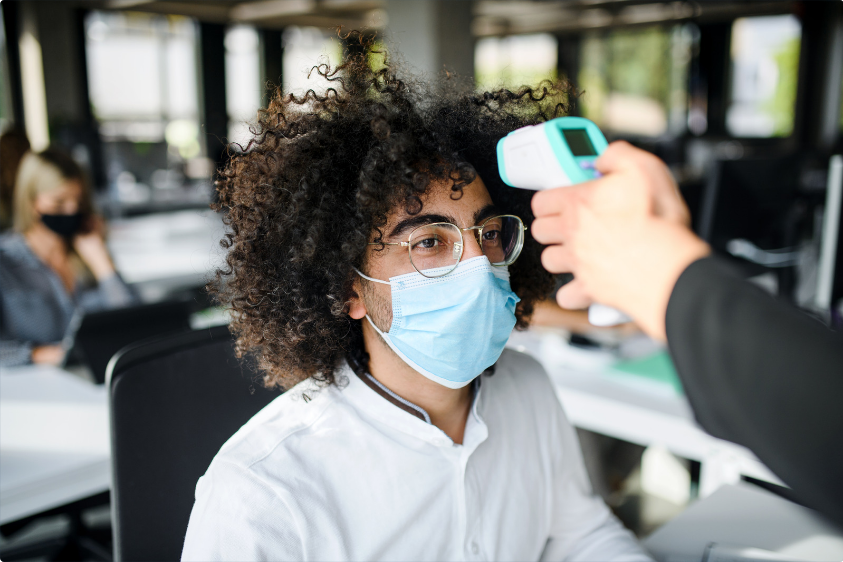
Following the efficient and systematic rollout of vaccines across the USA, it is time for employees to address the elephant in the room…
…does this mean they will have to return to workplaces soon?
Non-essential workers, now inoculated, may be required to return to the company offices as more and more businesses reopen, and restrictions continue to lift across the nation. While many people are finally relieved at the thought of going back to the same routine, others are skeptic – and for the right reasons. Is it really safe to physically go back to work? COVID-19 may be under control at the moment, but it is far from over – especially with newer variants and strains being discovered every other day.
The Centre for Disease Control and Prevention (CDC) has issued a few guidelines for all employees returning to their work spaces.
Here are a few things you must keep in mind in order to keep yourself and your co-workers safe as the world reels from the disastrous affects of the pandemic that claimed millions of lives globally:
- Vaccines can protect against COVID-19: Make haste in scheduling an appointment to get vaccinated. Most states have now opened general eligibility for vaccines. Which means all individuals over the age of 16 can get inoculated against the novel corona virus. The FDA approved vaccines which are being administered in the USA can effectively protect you and your loved ones from contracting COVID-19. They are safe and free of charge for all people living in the United States of America.
- Vaccines are fully effective 2 weeks after the second dose: According to the CDC, FDA approved vaccines such as Pfizer, Moderna and even the single-shot J&J are fully effective after two weeks of inoculation. This means that you may still be able to contract the virus if you come in contact with it before or immediately after you get your vaccine. Continue practicing social distancing and following the recommended SOPs for at least two weeks after you have received your second dose (or the only one, in case of J&J).
- Continue social distancing: With newer variants of the virus being discovered in other parts of the world, it is recommended that everyone should ideally continue social distances. The longer and more closely you interact with others, the greater your chances of developing symptoms of the disease. The virus spreads faster in tight, enclosed spaces and settings.
- Keep hygiene items handy: If you are returning to work, make sure you have your hand sanitizer, hand soap, wipes and tissue papers at your desk, or somewhere easily accessible. Hand sanitizers with more than 60% alcohol are effective against most bacteria and harmful viruses.
- Remain alert for symptoms: Remember that if you develop any of the COVID symptoms, it is always best to stay home and isolate for the recommend period of time. If you develop cough, soreness of the throat, fever or shortness of breath, seek medical attention immediately and inform the management at work.
- Protect the immune-compromised: There are currently still thousands of individuals who can/have not received the vaccines due to medical reasons or otherwise. Some of these people may be immune compromised, which means that the virus can make them critically ill, or potentially claim their lives. As researchers continue to study the effects of the vaccines, there is still little information available on whether or not they can prevent you from spreading the disease. For the safety of others, wear masks in closed, public spaces and maintain the recommended 6-feet distance with those around you. Sneeze or cough with your mouth covered and isolate yourself after returning from international travels.
Things may have started looking up for the economy and businesses owners across the country, but the pandemic still remains at large – still claiming hundreds of lives daily around the world. As you prepare yourself to return to work after a whole year, keep in mind that prevention is always better than cure. It is still not clear whether the vaccines can guarantee complete protection against all variants of the virus, but social distancing, mask wearing and following SOPs can go a long way in keeping you and your loved ones safe in these trying, unprecedented times.
All Med Search – 2021